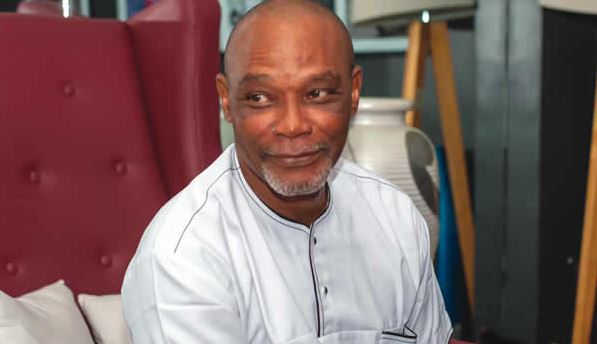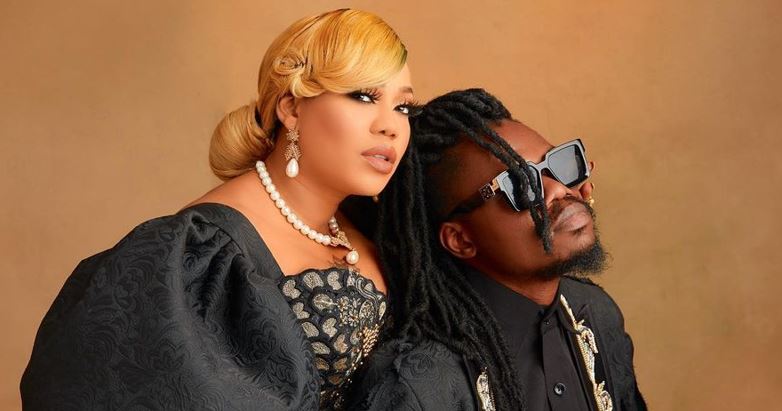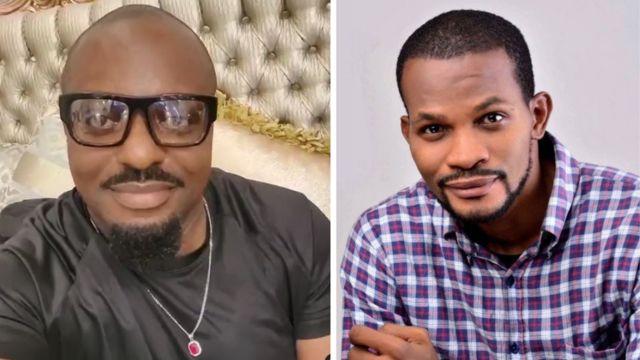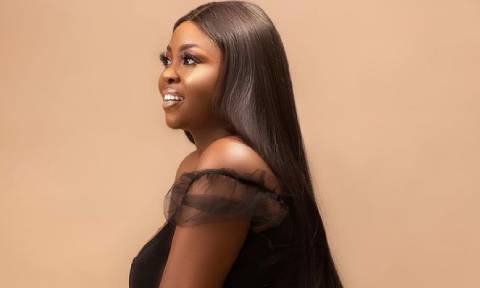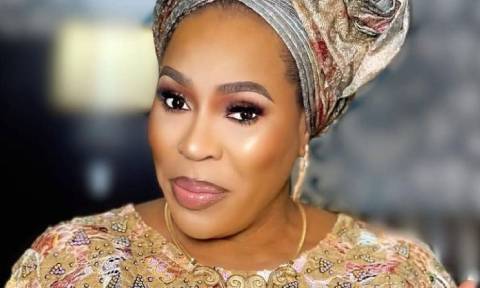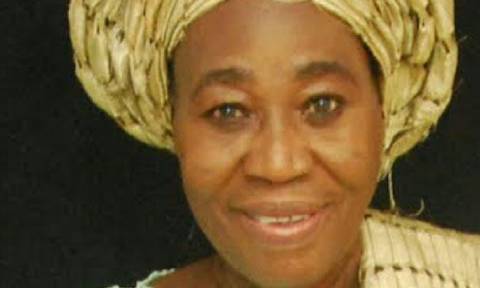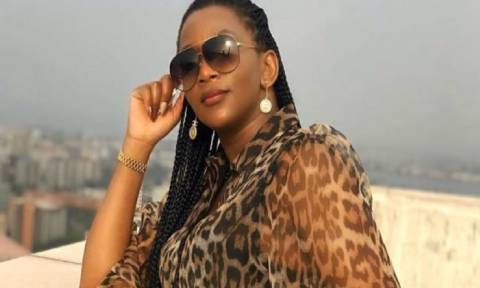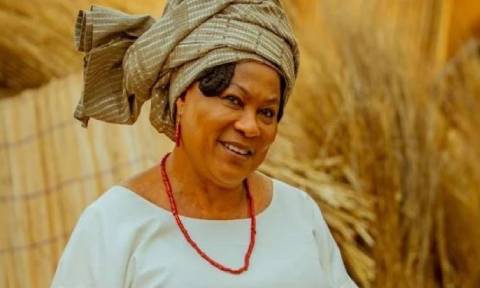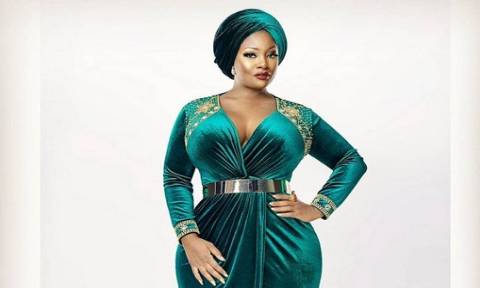VETERAN actor Nobert Young is one of the few Nollywood stars who has stood the test of time.
With almost two decades on the stage as a successful actor, Young first became prominent with his acting prowess when he featured on the late Amaka Igwe’s hit classic TV series, Checkmate. He has gone on to feature in several blockbusters. In this interview with SAMPSON UNAMKA, he opens up on his career, experiences and desire to retire as a director cum producer.
SIR, for a while now, you have been busy yet scarce, which films have you been working on?
There are various, some are out like ‘Lockdown’. ‘Collision’ will be out soon with Bolanle Austin Peters, we did a cast premiere two Sundays ago, and there are other ones I can’t remember their titles now, they are in the works, they are coming out soon. ‘Luggard’ premiered last Sunday, and it hit the cinema on August 27. So if you’ve not been seeing me on the screen, you’re either not watching, or they are coming out soon. I think that’s the best way to put it.
What defines who you work with?
Professionalism, dedication and commitment. Right from my start in Nollywood, that’s it, if you’re a professional and I trust your abilities, that’s it. Money doesn’t determine for me, I work with people who know what they are doing. Take a look at the people I work with, I trust them. If I don’t trust you, your abilities, I won’t work with you.
What if the pay is high?
That’s what I’m saying, it doesn’t play a big role for me. It’s important, but it’s not the determining factor.
What are the major things you look out for in scripts, and how often do you reject scripts?
Because of our peculiar nature, I don’t outrightly reject script, but I give you certain impossible conditions, and I know you will not want to meet them, so it won’t be my fault, it won’t be said as I rejected the script, ‘you couldn’t meet my terms’ let’s leave it like that. I ask questions when I want to do a movie. First of all, I will know the directors, then I ask who I will be working with, then I read your script. Most of our scripts lack characterisation, the people depend on the actors to do what they want, and it should not be so, the director should tell you what to do because the director at the end of the day is the owner of that interpretation, he’s the owner of the total artistic work on that movie, so it is his idea that you must carry out, but most times, the actors carry out their ideas, telling the director or the writer’s story. But the director should be the one to give you the direction that you should go, so for example, if I don’t have the trust that the director can do that, I won’t work with him, I can give you names of directors who do that, Tope Oshin, Tade Ogindan you must do what they want, not what you want as an actor, use your ability as an actor to realise what they want, because, at the end of the day, they employed you, they gave you their concept, and you must help them realise it. That’s what I look out for when accepting a script.
Is there any special ritual that helps you get into character on set, over the years?
Yes, I go through my ‘Actor prepares’ as propounded by Konstantin Stanislavski’s. Yeah, I go through that all the time. Characterisation may not be that deep because of special circumstances, but I go through that ritual. The ‘Actor Prepares’, there is a book like that, when you read that book, then you probably understand what I am talking about.
You are a veteran that has remained evergreen, what would you attribute to your longevity?
Keep your skills sharpened, exercise, be ready at any time, and be abreast with the latest, you know. An actor must always be relevant, until you die. I have often said that an actor retires at death, because there is always a role for any actor at any age.
Talking about staying relevant, you’re not one of the actors that’s active on social media yet think social media is one of the tools to be out there. So what do you think?
You see, when we were born, when we were growing up, we didn’t have these toys, some of us are still finding it difficult to be attuned with them, and I know that some of my colleagues hire people to do that for them. It’s good, whatever way you stay in the sight of people and the minds of people, it’s better for you. I agree that I haven’t been doing that so much, and people have been telling me why not. I just find it erm, when I have the time, I try to do as much as I can on my social media handle, but it’s not much. I have less than a thousand followers on Instagram for example, less than 5000 followers, it’s actually funny to me, but I will improve on that.
Does that mean you don’t have any issues with your kids being on social media?
No, I don’t, when they’re old enough, they would be, but when they’re not old enough, they would stay off social media. When they’re above 20, not 18, they would be on social media.
How many kids do you have?
I have four.
You’re a prominent figure in the classic TV series ‘Checkmate’, what are your comments on the quality of TV series at the moment?
I must agree that things have improved, in terms of technology, we shot on the Younatic Camera, the Eng as they call them, but we made the best use of that technology at that time. Everything was superb, camera work was good, but there were very few professional cameramen those days or DOP’s as we call them, but we have many of them right now, who have gone to the film schools and we have those who learned on the job, they’re doing a great job. But you see the cameraman is not the person who directs the film, so most of the work must be done by the director, especially the artistic director who is also knowledgeable in technicals. We’ve come a long way, 90s to this time, 30 years or so, things have improved greatly. But my quarrel right now is still with the quality of acting, for me the quality of acting at that time compared to now is much better. Because those days in ‘Checkmate’, you hardly get a role if you’re not a professional actor. But nowadays you bring people on set and decide to teach them, you don’t expect the same result, do you? You don’t. But people are learning doesn’t mean it’s that bad. You ask me about the difference, that’s why I’m telling you these things. The acting those days because most of them were trained already, the professional actors, now the same thing with the crew, most of them were fallout from NTA, and you can’t get employment on NTA if you are not qualified. It’s the same thing, it’s like private schools and governments schools now if you don’t have the pre-requisite qualifications, you can’t be employed to teach in a government school, but in a private school they employ anybody, you understand, so in my mind, the government schools are probably better than the private schools, because they employed qualified teachers. That’s what the old Nollywood did.
Some veterans are now joining the bandwagon by going into skit-making because it seems easy to absorb and digest. Do you see yourself going into skit?
You mention social media, that’s the reigning thing, skits you’re all over the place when you do them, I enjoy watching them, but don’t ask me if I would go into it, I don’t know. But, I have done it for my enjoyment, I don’t know if it was a skit, I just tried to do something funny and they’re all on my Facebook page and on my Instagram too, two of them. But I don’t see myself as a comedian. I can do funny things but I am not cut out for that genre, but I enjoy watching them, and like you said we must make use of social media. Yeah, I haven’t gotten there yet, and I don’t know if I will get there.
Aside from acting, what other aspects in the movie industry are you involved in, and how has that worked for you?
Training, I have a school where I teach actors.
What is the name of the school?
It is called the ‘Centre for media development’, it is on Ojodu road. So far I think I have trained over 200 people. Some of my director friends have sent some people to me for training also and some organizations engage me to train people that they want to use. But I like training actors. The little that I know, I want to pass it on to the younger ones, and whenever I am on set, if I have the opportunity and if I’m asked, I help in telling people how to realise their character. So apart from being in front of a camera, training is what I do a lot.
If you didn’t become an actor, what would you be doing now?
That’s a funny question, If my father was alive by the time I was getting into the university, I probably would have become an engineer. My father wanted me to be an Aeronautical engineer. He was pushing me in that line. But then he died too early, even before I entered secondary school. But I tried to live his dream by being a science student, but it didn’t work out. So if he was alive, maybe I would have been an Aeronautical engineer.
As you said, some directors don’t look out for professionals, rather they look at social media followings just to make you part of the cast. What’s your take on that?
At the end of the day everybody is wanting to make money, we are looking out to make money so it pays them to get the popular faces over the professionalism or the professional output and so far some of them have been able to manage this thing well and again some are wise they take the very good professionals and mix them with the popular ones on the Instagram, so at the end of the day they have the professionalism and they’re making money it’s a good business-wise everybody looking to make money.
Do you see yourself turning into a director?
I specialize in the drama group as a director, not an actor, my final project in school then was as a director. And then, here and there I’ve done directing but basically, I’ve been concentrating on acting and teaching but sometimes maybe God willing in the next five years I would have pulled enough resources to go into producing and directing, thank God I have a wife who is a good producer, so I’m going to go there and that’s how I’m going to retire as a director and a producer.
You must have worked with over 35 directors in your career, tell us the new generation of directors you look forward to working with?
New generation directors, I don’t know many of them. Kemi Adetiba is one I worked with her on King of Boys, yeah she’s quite good, okay she is a new generation director.
Directing cuts across all generations, now you mentioned Kemi, Kemi is good. Who else are the people you know that are doing well?
That’s what I’m saying, I don’t know too many of their names, there are others who pass as new generations. Tope Oshin is a new generation, Moses Inwang is a new generation, Ramsey is a new generation. I’ve worked with those three and they’re revolutionaries, they’re rebels they dare and you must dare if you’re a director, you must dare. You must dare to make the unusual, you must explore the unusual. Then the masters from the past Tade Ogidan, Pedro Obaseki, Charles Novia and some other great guys like that. I worked with those ones and they challenged me, I mentioned Tope Oshin earlier, she’s is the kind of director that will not let you do what you want to do, Tade Ogidan goes to the extent of directing your speech that’s what a director does, I like such directors, not a director that will just say, say the lines. No, you must be streamlined into my concept, you know what I’m saying so for me I don’t want any new generations or old generations, directors are directors.
